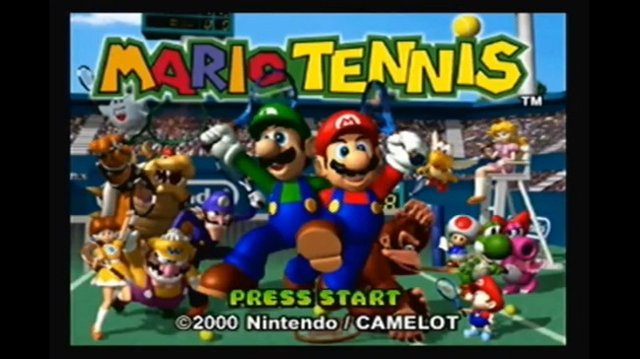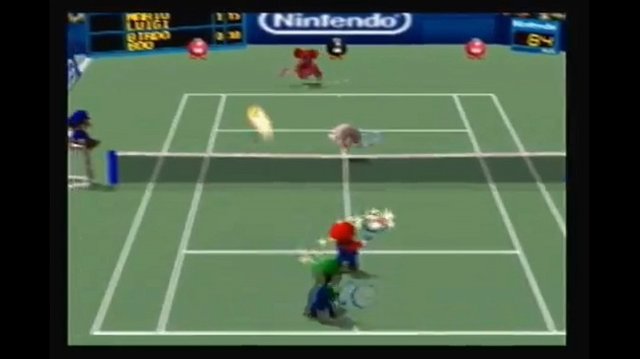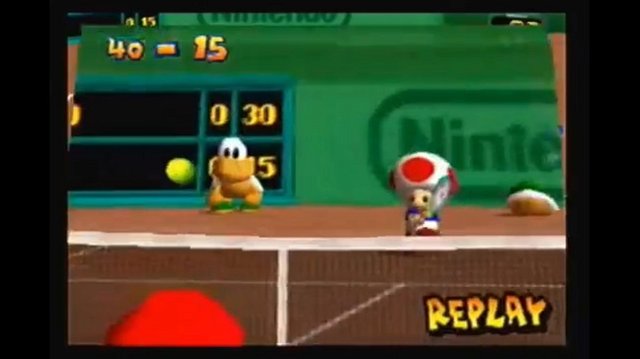Mario Tennis Review (N64)
In an age where every other Mario game seems to be an ensemble effort that draws together practically every character from the Nintendo canon, with a few other prominent attractions from third-parties on the side, it can be easy to forget that there was a time when the concept of bringing together the Mario – or Nintendo – universe was actually quite fresh. Outside of Mario Kart there weren’t a whole lot of games doing that at the turn of the century.
That’s what we have here with Mario Tennis on the N64. It was a game that felt novel at the time, particularly because it not only reintroduced the characters of Birdo and Daisy to the Mario canon, but also because it gave an introduction to Waluigi, who essentially played Wario’s alter-ego role, only this time with the obvious mirror-image being Luigi. Still, it would all be for naught if the title didn’t play a good game of tennis.
The Boys Are Back In Town

The first thing you will notice about Mario Tennis is that it has a stacked roster. The previously-mentioned newbies and returning faces are joined by practically all of the major players in the Mario universe, including Luigi, Bowser, Peach, Toad, Yoshi and the titular plumber himself.
This big roster isn’t just for show either. Each character has strengths and weaknesses that play out on the tennis court. Your smaller guys will tend to be nippier when running around the court, but also struggle to generate the power needed to put shots out of reach through sheer force alone, so they often have to play the angles.
Larger characters gain in power what they lose in speed and are most likely to smash aces and manipulate their opposition by making them to scramble for hard shots. It’s a surprisingly complex dynamic that is reinforced by the fact that each character has specific AI that determines the types of serves they will put in or whether they are prone to adding slice to their shots. For a game that is focused primarily on fun, all of this depth certainly makes the single-player mode worth experiencing.
However, it should probably come as no surprise that single-player doesn’t match up to the pure joy of playing against friends, but there is plenty there to dig your teeth into. The exhibition mode will allow you to enjoy a game or two with your own rules, choosing sets, difficulties and opposition. The tournament mode offers a variety of cups, each of which is more difficult to earn than the last. There’s also a ring-based mini-game that is easy to lose time to.
Come Together

As alluded to, the multiplayer is the main draw for games like this and it is something that Mario Tennis excels in. The deep roster of characters means there is plenty of choice, which allows for varied games. Better yet, the game offers up a simple control scheme that makes it easy to pick up and play, though novices will usually be beaten handily by those who have developed their skills on their own.
Playing it with friends in the modern gaming era harkens back to the days before multiplayer console games were all about calling people names online while shooting them (yes this is hyperbolic simplification but you get the point). Get all four controllers plugged in and you can easily spend entire nights with a few beers and a group of friends, vying for virtual domination of the Mario tennis court.
The camaraderie of a doubles match and the agony of defeat in a closely-contested singles is something that can’t be replicated by modern multiplayer games and it is a sheer joy to go back to those days with a game that was built specifically for that crowd. While local multiplayer is certainly not dead, it is on life support when compared to what it was in the late-90s and early-2000s. The N64 probably stands as the pinnacle of that era and this is one of the games that made it such a heavy hitter when it came to multiplayer.
Hit It Hard

So what about the actual mechanics of the game? It takes a special title to be so accessible while offering great depth and it all comes down to the brilliant two-button shot system that Nintendo put in place. Using the A and B buttons, players can choose to slice or hit the ball straight. Combining the two offers more spin on the ball and pressing them in different orders allows for lobs and drop shots. These latter shots won’t be all that important in the first couple of tournaments, but once the AI starts pulling them on you it is important that you master them.
Learning all of these shots is the only way you are going to be able to adjust to the different strategies each character brings to the court. A well-placed drop shot will often be enough to confound the likes of Bowser or Wario, but you may have to use it to draw a Toad or Yoshi in before smashing a power shot or executing a lob past them once they’re at the net. It strikes just the right balance between fun and challenge to keep pushing you forward, as you know that every loss you suffer can be rectified with a little more skill and practice.
Super Spotlight
Returning to an N64 game is often a bit of a mixed bag. The controller is a bit of a sod to get back to grips with - no matter how much people claim it to be, it is not the best controller of all time – and playing the games on a HD TV is often a weird experience. There was always a certain amount of “blur” in N64 games, but HD makes this more pronounced. It still looks fine, but graphics fiends are likely going to shy away from games like this. Then again, if that’s your bag it’s likely you aren’t spending your time playing sixteen-year old games anyway.
The sound quality is similarly murky – another leftover from the cartridge-based era – but connecting with the tennis ball offers a suitably meaty clunk and there are plenty of little character noises to annoy you after you’ve heard them for the hundredth time.
Still, it’s a mite unfair to judge a retro game on two attributes that age massively with each console generation. A game like Mario Tennis is played for the sheer quality of its gameplay and to appreciate little innovations, such as the ability to connect the game with the Gameboy Color version to upload different characters on each one, than it is to bemoan the fact that graphics from sixteen years ago can't compare to what we have today.
Bring It On Home
So is Mario Tennis worth a play so many years later? In a word: yes! From the moment you pick up the pad you will get eased into the experience and start scoring wins. With that initial rush of success achieved, the game does an excellent job of managing its difficulty curve so you develop your skills alongside the slowly-increasing toughness of the AI. Get a few friends together and you have a game that can bring joy and pain in equal measure, which is all anyone really wants out of a local multiplayer experience.